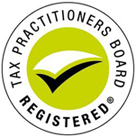And knowing how to detect a false bill
It’s harder to escape some of these tricksters, but you need to be aware of scammers that keep inventing new ways to bleed your hard earn’t money out of you. Some uncomfortable statistics regarding common scams in 2017:
- Close to $5million was taken in scams last year
- According to the ACCC, there has been a 23% spike in business loss due to scams in 2017
- A quarter of all scams are “false bills”
- Employment and investment scams cost nearly $1.7 million
- There was an increase in reported loss for false bills, employment and investment scams
- Scammers don’t discriminate against businesses – you could be next
What is a “false bill”? It is a document which has been forged by an unauthorised party to appear as though it has been sent by a genuine creditor. Examples include invoices for directory listings, advertising, domain name renewal, or office supplies. They usually have company logos on them and look accurate. The sender’s email address is sometimes a clue. Sometimes there is nothing more than a virus attached to the alleged invoice or false bill. When you click on the link to access the so-called document, your computer is immediately infected with the virus.

A further extension to these “false bills” is what is known as an “employment and/or investment scam”. This type of scam offers services used by businesses for things such as web page development, search engine optimisation (SEO), small business loans, and directory listings. They are prolific!
They are dangerous because they appear so genuine. When a business signs up for one of these “services”, which seems like a fantastic idea (or great value for money), only to find their money is taken, but no service has actually been provided. Essentially the offer was never really there.
The best and only real option is to be scam aware. How is this achieved? Businesses, and individuals, can instigate strong internal processes, put into place to ensure that they are not being scammed. Actions such as doing an ABN check to ensure that the business name and details match up or taking the time to investigate the invoices thoroughly (before you open them), additionally you can ensure that the invoice was sent by a legitimate company. These are all excellent practices to minimise the damage that scams are costing Australian businesses, and to make sure that your own business does not fall prey to scammers. Can you afford not to be cautious?



